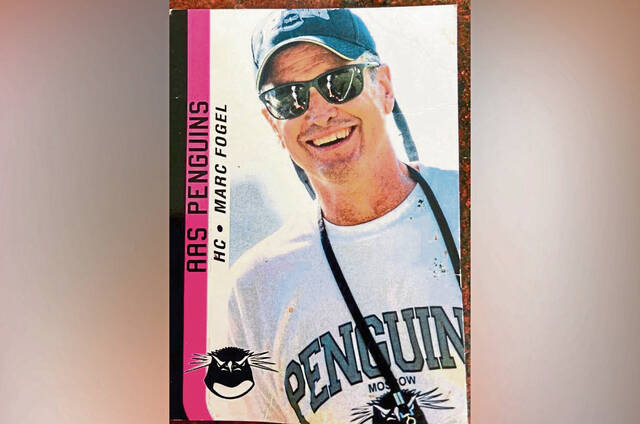Editorial: U.S. should work to bring Oakmont's Fogel home from Russia, too
When WNBA star Brittney Griner was arrested in Russia in February for possession of marijuana vape cartridges, everyone sat up and paid attention.
Maybe it was that she was famous. Maybe it was how the 6-foot-9 Griner towers over the guards she is shown alongside. It most likely was how closely the event coincided with tensions between Russia and Ukraine transforming to war.
Regardless, for five months, stories of Ukrainian President Volodomyr Zelenskyy’s leadership and Russian President Vladimir Putin’s reactions often have been followed closely by updates on Griner’s detention, progress through the foreign court system and U.S. intervention to secure her release.
The focus can make it seem that Griner is the only American detained overseas. That couldn’t be further from the truth.
The James W. Foley Legacy Foundation advocates for American hostages and detainees around the world in memory of its namesake, a freelance journalist kidnapped in 2012 and murdered in Syria in 2014. The foundation points to a minimum of 67 Americans being held, most by hostile governments.
One of those is Marc Fogel, a teacher from Oakmont, who has been in Russian custody for about a year.
Like Griner, his crime is related to marijuana. He was in possession of about 17 grams of medicinal marijuana used to battle chronic spinal pain that has plagued him for decades. In Pennsylvania, that’s fine. In Russia, it resulted in drug possession and smuggling charges.
Fogel is 61, 30 years older than Griner. He doesn’t tower over the guards even if cameras were trained on him. But he is a teacher, not a basketball star, so cameras were never really a factor.
Griner has U.S. Secretary of State Antony Blinken brokering a deal to trade a Russian prisoner for her and another detainee, former Marine Paul Whelan. Fogel, on the other hand, has been sentenced to 14 years in a maximum-security penal colony.
“It’s not hyperbole to say it is a death sentence for him,” his sister Lisa Hyland of O’Hara told the Tribune-Review. “There’s no way my brother is going to survive there for 14 years.”
Let’s forget that his pain is no longer being managed by the medication that started this problem. Let’s ignore that the sentence is disproportionate to the crime; similar sentences have been handed out for hundreds of pounds of cocaine, not a few grams of weed.
We are talking about a man old enough to retire being kept in Soviet or pre-Soviet era detention where AIDS and tuberculosis are just some of the diseases easily spread, according to the Centre for Eastern Studies in Warsaw. He would be almost 75 when released.
Bargaining for Griner’s release could be dangerous. The U.S. has long had a policy of not negotiating with terrorists, because paying ransom in one case makes Americans a commodity. One could argue Russia isn’t a terrorist state, but the equation remains the same. If Griner is worth convicted arms dealer Victor Bout, what concessions could Putin win for someone else?
But if Americans are going to go to foreign countries to do work like Fogel’s — teaching at the Anglo-American School in Moscow — there needs to be a plan and a commitment to bringing them home.
Even if they aren’t famous.
Remove the ads from your TribLIVE reading experience but still support the journalists who create the content with TribLIVE Ad-Free.

